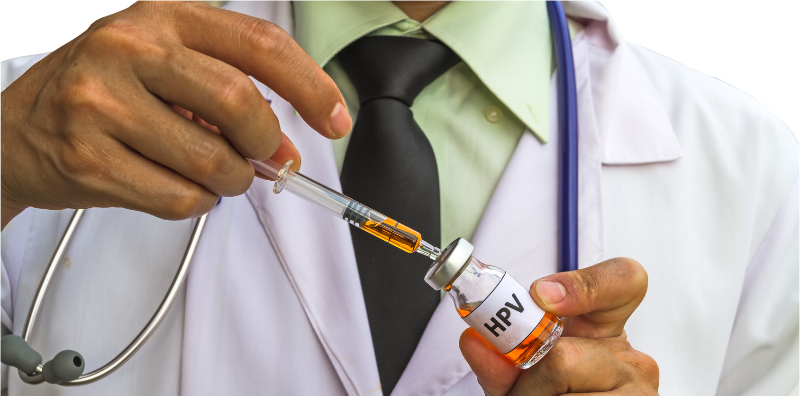
11:46 7th January 2018 | Uncategorized
Human Papilomavirus Infection Genital Warts Cervical Cancer Pap Test Vaccination Bridge Clinic Medical Centre
Human Papillomavirus (HPV) is a very common infection contracted from skin contact and from vaginal, anal or oral sex with someone who has the virus. The infected person may not even show signs or experience any symptoms, in fact, symptoms could take years to show after HPV has been contracted.
The most important thing you need to know about Human Papillomavirus is that some types of HPV do not go away and can cause genital warts or lead to cervical cancer or cancer of the anus or penis.
Note: Genital warts and cancers are not caused by the same types of HPV. Also, you can not get HPV from a toilet seat, swimming pools or from an infected person’s blood.
HPV and Cancer
HPV can cause cervical cancer as well as cancer of the vulva, vagina, penis or anus and cancer in the back of the throat, base of the tongue and tonsils.
Testing for HPV in Women
Although HPV causes cervical cell changes, an HPV test can only check for the virus. An HPV test is performed together with a pap test which tests for the cervical cell changes. Currently there are no tests available for men.
How Can HPV Be Avoided and Prevented?
THERE IS NO CURE. To decrease your chances of contracting HPV you should:
Prevention is and will ALWAYS be better than treatment.
Who Should Get Vaccinated When?
How Can HPV Be Treated?
Some low-risk HPV infections may clear up. However, if an infection does not clear and starts causing problems, treatment is required. Problems include genital warts, cervical changes and cervical cancer.
Genital warts can be treated with prescription medication. Cervical precancer can be treated. The key is to go for routine Pap tests and follow-ups to catch problems before cancer develops.
HPV and Pregnancy
HPV in pregnant women can lead to genital warts or the development of abnormal cell changes on the cervix. Therefore even pregnant women should go for routine cervical cancer screenings. When diagnosed early, some HPV-related precancers and cancers are treatable.
Screening Guidelines for Cervical Cancer
HPV Treatment at Bridge Clinic
At Bridge Clinic’s Medical Centre you can make use of gynaecological services which include cervical cancer screenings. If deemed necessary, some patients may be referred for further care.
IMPORTANT: If you are a women trying to conceive within a year, DO NOT get vaccinated for HPV. Contact us for more information on our Fit-for-Pregnancy package that includes vital tests for women planning or trying to conceive.
Get in touch today to book your screening and/or vaccination.
Email: enquiries@thebridgeclinic.com
Call: 01 631 0092 / +234 (0)1 631 0092
Visit: 66 Oduduwa Way, Ikeja GRA
Search by condition, treatment or keyword and conveniently browse our informative articles
Book an appointment online or search for a clinic close to you.
Book an Appointment